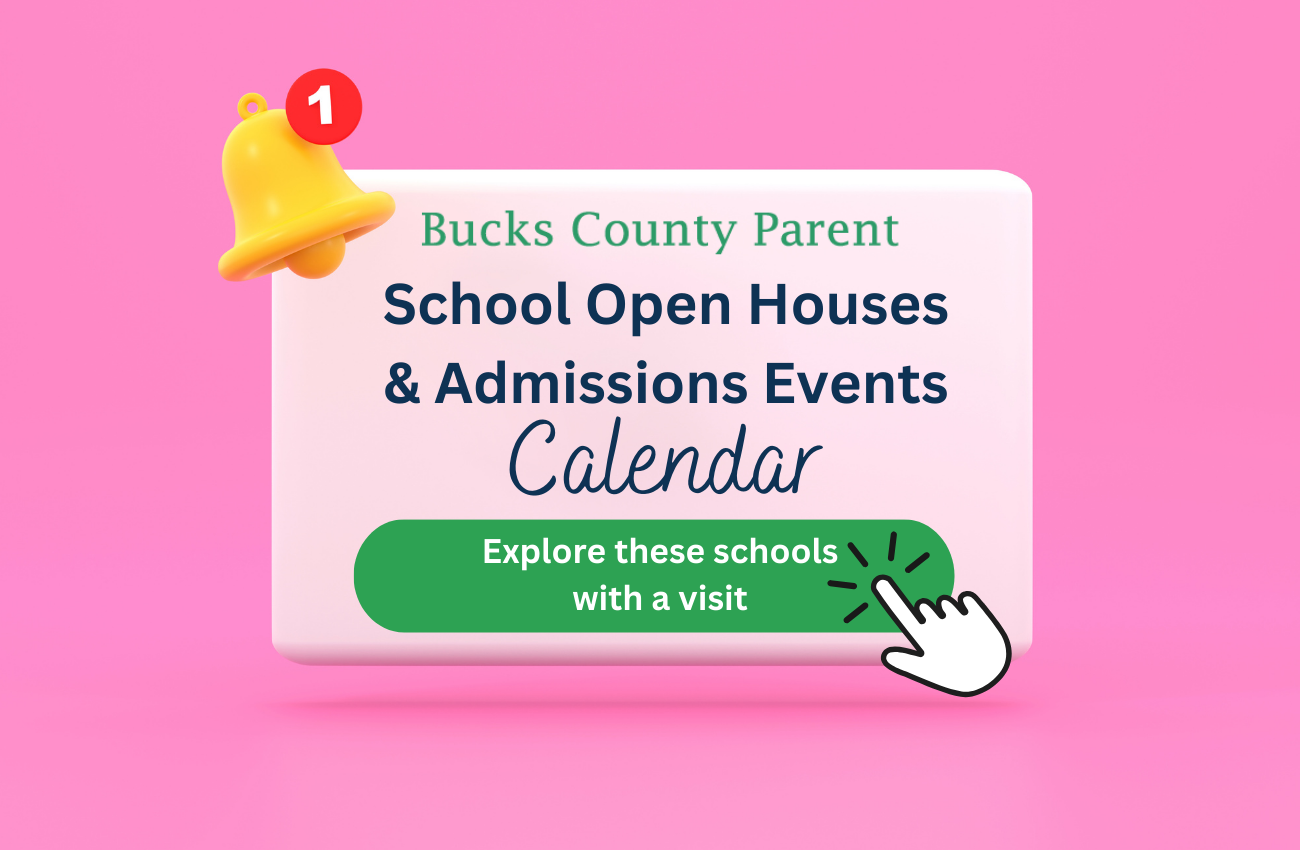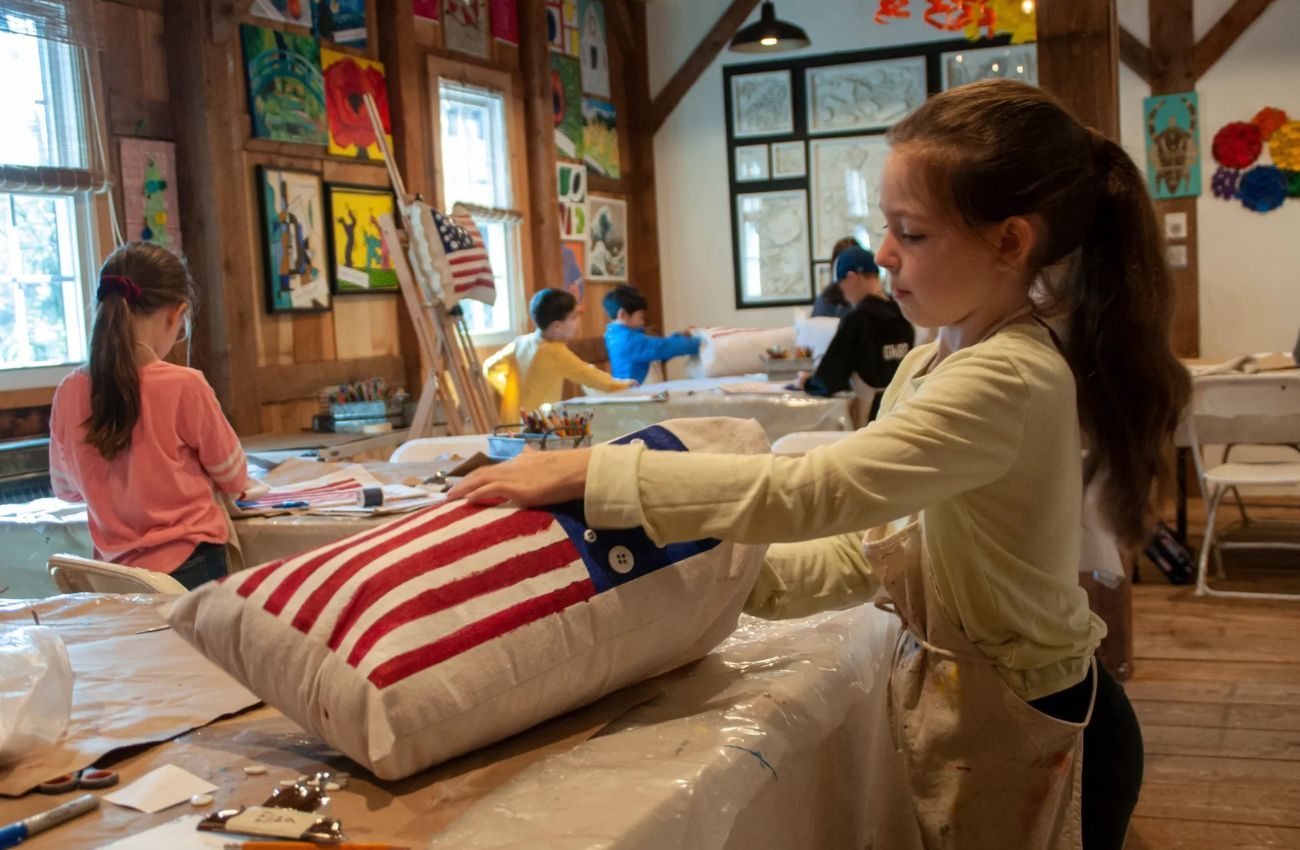Choosing a Preschool – Tips for Parents in Bucks County
Before you start buying toddler sized backpacks and roll-up nap mats, you must first find the right early childhood education environment for your little one. We can help.

As a parent, selecting the right preschool for your child is a big decision that can impact their early learning experiences. With a plethora of options available, ranging from traditional to Montessori, finding the perfect fit may seem daunting. However, by considering several key factors, you can make an informed choice that aligns with your child’s needs and your family’s values. If you’re looking for some preschool suggestions, be sure to check out our Education Guide and Open House Calendar!
Understand Your Child
Every child is unique, with distinct interests, strengths, and learning styles. Before beginning your search, take time to reflect on your child’s personality, preferences, and any specific needs they may have. Consider factors such as their temperament, social skills, and level of independence. Understanding your child’s individuality will help you identify preschools that can cater to their unique requirements and provide an environment where they can thrive.
Research Different Philosophies and Approaches
Preschools often follow various educational philosophies, each with its own approach to teaching and learning. Common philosophies include play-based, Montessori, Reggio Emilia, Waldorf, and traditional academic programs. Take the time to research these approaches and consider which aligns best with your child’s learning style and your family’s values. For instance, if your child thrives in hands-on, experiential learning environments, a Montessori or Reggio Emilia preschool may be a good fit. Alternatively, if you prioritize a structured curriculum with a focus on academics, a traditional program may be more suitable.
Visit and Observe Potential Preschools
Once you’ve identified preschools that align with your preferences, schedule visits to observe the classrooms and meet with the staff. During your visit, pay attention to the overall atmosphere, cleanliness, and safety measures in place. Observe how the teachers interact with the children and assess whether they create a nurturing and supportive environment. Look for evidence of engaging activities, age-appropriate materials, and opportunities for hands-on learning. Take note of the teacher-to-student ratio to ensure that your child will receive adequate attention and supervision.
Inquire About Preschool Curriculum and Learning Opportunities
Ask about the preschool’s curriculum, including the subjects covered, teaching methods employed, and goals for student learning. Inquire about the balance between structured activities and free play, as well as the incorporation of social-emotional development and critical thinking skills. Additionally, inquire about any enrichment programs or extracurricular activities offered, such as music, art, or foreign language classes. A well-rounded curriculum that fosters holistic development will provide your child with a solid foundation for future academic success.
Practical Considerations
Finally, consider practical factors such as location, hours of operation, and tuition fees. Choose a preschool that is conveniently located and offers flexible scheduling options that align with your family’s needs. Evaluate the affordability of tuition fees and inquire about any financial assistance, payment plans, sliding scales, etc. Additionally, consider the school’s policies regarding sick days, holidays, and vacations to ensure compatibility with your family’s schedule.
Choosing the right preschool for your child is an important decision that requires careful consideration and research. By understanding your child’s needs, exploring different educational philosophies, visiting potential preschools, and considering practical factors, you can make an informed choice that sets the stage for your child’s lifelong love of learning. Remember that finding the perfect preschool is not just about academic excellence but also about providing a nurturing and supportive environment where your child can grow, explore, and thrive.





